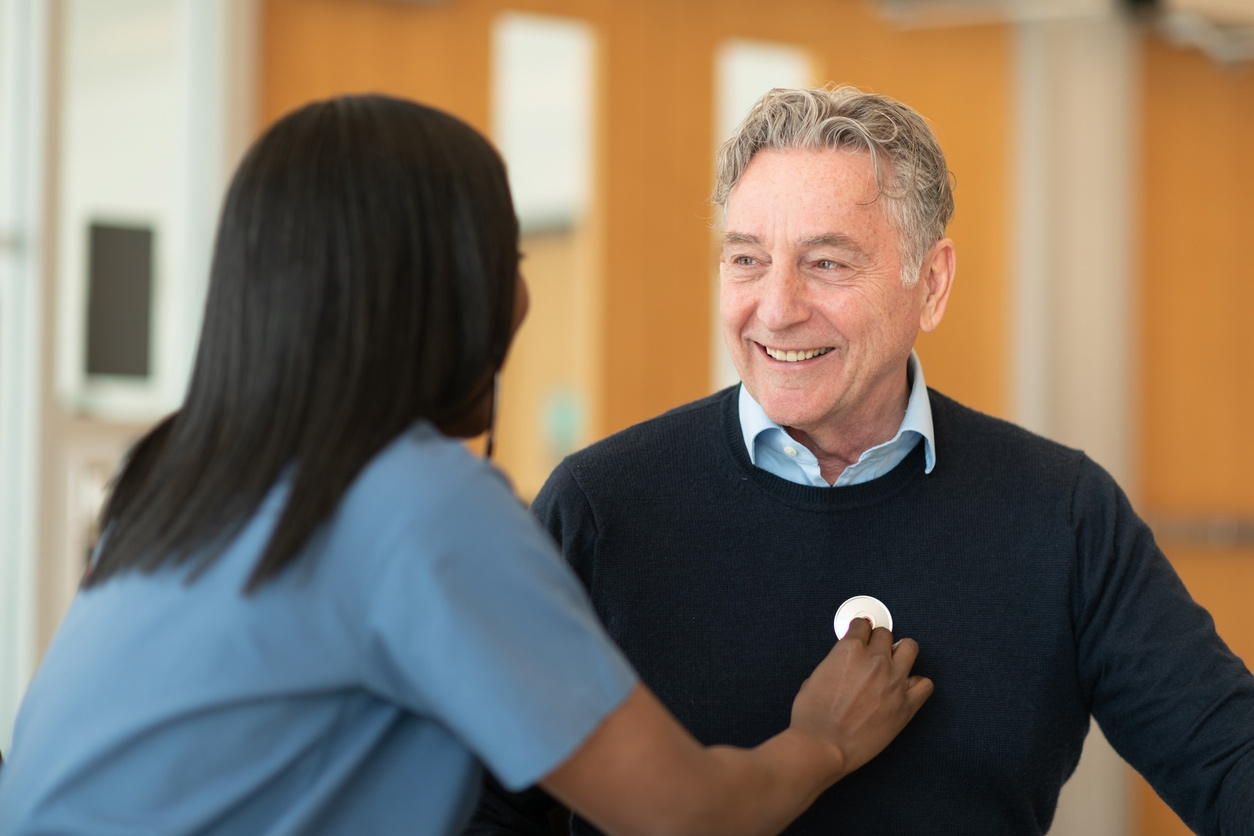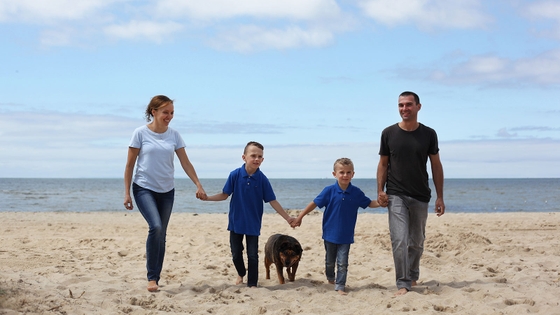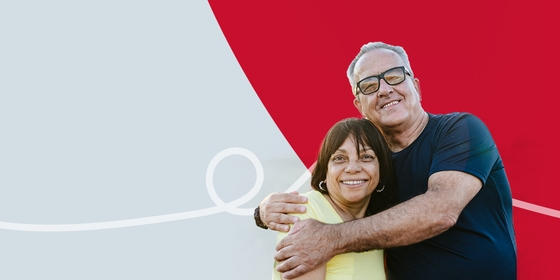
Heart attack recovery – your first month
Have you recently had a heart attack?
Explore the Heart Foundation’s guide on what to expect in the first month after your heart attack.
Key takeaways
2 min read
Having a heart attack can be a scary and overwhelming event.
You need to know what has happened to you.
There are steps you can take in the first month after your heart attack to start recovering.
If you’re alone and think you’re having a heart attack, call triple zero (000) immediately.
A heart attack can be a life-changing event. It’s common for many people to feel scared, confused and overwhelmed after a heart attack.
After your treatment, you likely received instructions and a lot of information from your doctor. You may not remember a lot of what the doctors and nurses told you, especially during the first few days. Don’t be afraid to ask questions of the staff. You can also talk to your family about what’s happening.
Find out what to expect in the first few weeks after having a heart attack.
What happened to you?
It’s important to know what has happened to your heart, in order to recover.
A heart attack usually happens when an artery that supplies blood to an area of your heart is suddenly blocked.
Ask your doctor or nurse exactly what happened and what treatment or procedure you have received.
Your heart attack risk factors
Learn about the heart attack risk factors that are relevant to you, including:
High blood pressure
High cholesterol
Diet
Smoking
Speak to your doctor about your heart-health history. They can advise you on the heart attack risk factors you need to manage. Keeping your heart healthy and ongoing management of risk factors is critical to reducing the risk of another heart event.
Cardiac rehabilitation
Cardiac rehabilitation, also called cardiac rehab, provides personalised support, including information about:
Your heart condition and treatment
Getting back to your usual activities (for example, work, driving, having sex)
Changing your lifestyle to improve your heart health
Managing your medicines
Stopping smoking
Knowing warning signs
What to do in an emergency.
Ask questions about things that worry you and get support if you feel stressed, anxious, or depressed.
Cardiac rehabilitation can help you recover and get back to normal activities sooner.
Taking your medicine
There are many medicines that treat:
Heart attack
Angina
High blood pressure
High cholesterol
Other heart conditions
Your cardiologist, along with your doctor, will decide the best medicines for you to take at home. These will help you manage your heart condition. Speak to your doctor or cardiologist to understand the medicines you need to take.
When you leave the hospital, you will only have enough medicine for a short time. You must keep taking these medicines. See your doctor for more prescriptions and discuss any concerns you have with them.
Warning signs of a heart attack
Warning signs of a heart attack can differ. Not everyone will experience the same symptoms or have the same severity of symptoms. Some people have mild pain, while others have more severe pain.
Some heart attacks strike suddenly. Many people have warning signs and symptoms, hours, days, or weeks in advance.
It’s important to know:
The warning signs and symptoms of a heart attack
What to do if you or someone close to you is having a heart attack.
If you’re alone and think you’re having a heart attack, call triple zero (000) immediately.
Don’t wait, every minute counts – recognising symptoms and acting quickly by calling triple zero (000) can reduce damage to your heart and save your life.
Follow up with your doctor/cardiologist
Regular doctor visits are essential to monitor your heart health and medicines. You can also use these visits to discuss any questions you have about your medicines, emotional health, or recovery in general. They’re there to help, so don’t be afraid to talk about any concerns.
Your first steps to recovery
Having a heart attack can be a scary and overwhelming event. It’s important to know what has happened to you and what you can do in the first month after to start recovery.
Understand what has happened
Understand potential future risk factors
Join a cardiac rehab program
Understand your medications
Know the warning signs of a heart attack.
Learn more about how cardiac rehab can help you get back to normal activities.
MyHeart MyLife support program
MyHeart MyLife is our free digital program for people who have had a heart attack, angina or been diagnosed with heart disease. The program goes hand-in-hand with cardiac rehabilitation by giving you extra information and support.
By joining, you’ll get access to:
- heart health information, expert guidance and practical tips via online articles and short videos
- supportive text messages and emails to motivate and inspire
- access to the MyHeart MyLife online support community, where you can connect with others on a similar journey to you.
You might also be interested in...

Long-term recovery after a heart attack
Information to help you adjust to what could be the 'new normal'

MyHeart MyLife program and support resources
Your next step towards recovery and living well with heart disease
.jpg?width=560&height=auto&format=pjpg&auto=webp)
Stories from the Heart Podcast
A Heart Foundation podcast that delves into the stories of people living with heart conditions, and of those researching solutions to heart disease’s challenges.
Last updated11 August 2024